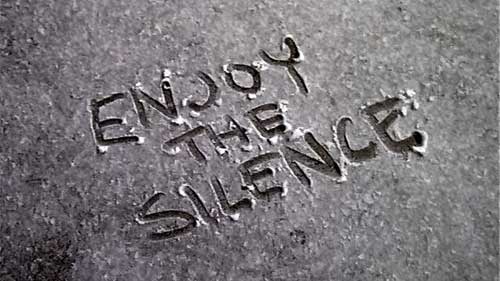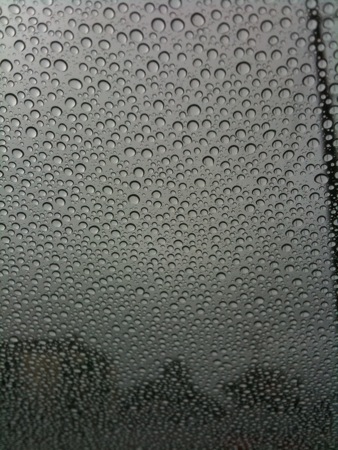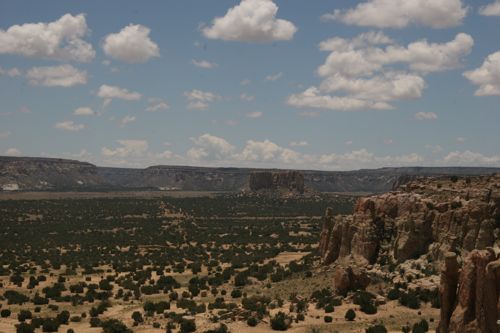Category: personal

I just got back from two weeks in Cuba—not the easiest place in the world to get to from the United States, especially in these times of heightened scrutiny. (The recent relaxation of rules by the Obama administration made the trip possible for family and research.) My first impression upon leaving Aeropuerto Internacional José Martí-La Habana was of the ubiquity of street placards with revolutionary slogans. “Comandante en Jefe, tus ideas son invencibles,” said one, under a picture of a younger-looking Fidel Castro. Another warned, “La vigilancia revolucionaria: tarea de todos.” Perhaps my favorite sign was the one that boasted, “250 milliones de niños en el mundo duermen hoy en las calles. Ninguno es cubano.”
For all the revolutionary slogans, Cuba has inched further and further toward a free market economy, of sorts. There are now many private businesses: paladars and guest houses, for instance, which are frequented almost exclusively by tourists. The introduction of convertible pesos has created a system in which a few Cubans have access to this valuable currency, while the majority does not. As a result, people are always trying to get their hands on the convertible pesos and now you see street hustlers in a country that used to be mercifully free of them. The revolutionary ideals have become little more than a selling point, a way to attract foreign tourists.
There was so much to see and so little time to do it. We took a walking tour of Habana Vieja, with its stunning architecture; visited the Museo de la Revolución, where you can see the American yacht Granma, used by Fidel Castro, Camilo Cienfuegos, Che Guevara and 79 others to launch the Cuban revolution; saw a performance by the Ballet Nacional de Cuba in an old church; waited for the cannon shot at the Fortaleza de San Carlos; took a tour of the Partagas Cigar Factory, which was smelly, loud, and frankly a bit Dickensian; and browsed many, many bookstores. By far the oddest sight for me were the Afghan students in Cienfuegos, amid scantily clad tourists and locals. They were apparently there to train as doctors, as part of the country’s own efforts to win hearts and minds. (I’m going to take a wild guess and say that training doctors might work better than dropping bombs.)
So this wraps up this very quiet and productive year for me. Thank you all for continuing to read my blog and to write to me with your thoughts. I wish you all a happy and healthy new year, filled with joy and prosperity.

At about this time last year, I decided that I wouldn’t send out any stories or essays and that I would turn down requests for contributions to magazines or anthologies. A vow of public silence, you could call it. I wanted to spend all of 2010 doing two things only: reading and writing. So, whenever I wasn’t teaching or traveling, that’s precisely what I did. I read and I wrote. It wasn’t always easy, especially at the beginning. It was difficult to resist the temptation to write a review of a book I particularly enjoyed or an opinion piece about the latest political outrage. (Oh, sure, I had short pieces coming out here or there, but these were written before my resolution.) And now it’s been a year, and I realize this was one of the best things I could have done for myself. I feel as if I’m still under the spell of that working silence, so that I hesitate even to tell you about the novel I’ve written or the essays I’ve completed. But all in good time.
This review I wrote for The Nation is the first one I’ve written in a year. (It occurs to me that my last piece was also for them, from last November.) It’s about the Moroccan writer and critic Abdelfattah Kilito, who has recently released a collection of short fiction with New Directions, in a translation by Robyn Creswell. Here is how it opens:
On Idriss al-Azhar Street in downtown Rabat, not far from the Muhammad V Mausoleum, there is an unassuming but wonderful little coffee shop, the Café Jacaranda, where book readings are held and young artists’ paintings exhibited. There, on a warm spring afternoon three years ago, I went to hear two of Morocco’s foremost intellectuals discuss the feminine and masculine in classical Arabic literature. One was Fatema Mernissi, the world-renowned feminist, sociologist, and memoirist, the author of some twenty books on feminism and Islam, and co-winner, along with Susan Sontag, of the Prince of Asturias Award. Her arrival at the café was met with murmurs of awe. A throng of admirers immediately surrounded her, so that the only part of her that remained visible from the other end of the lobby was her fiery red hair.
The arrival of the other panelist, Abdelfattah Kilito, went unnoticed until it was time for the event to start. Where Mernissi was gregarious and funny, Kilito was reserved and bookish. Once the panel discussion started, however, the audience got to hear Kilito speak knowledgeably about Maqamat al-Hariri, the classical work of rhymed prose that until the end of the nineteenth century was one of the most widely read books of Arabic literature. Kilito spoke about the use of the sun and the moon as symbols for the masculine and feminine, the popularity of the Maqamat, the miniatures that the artist al-Wasiti created to illustrate the manuscript, the reasons why these miniatures are nowadays more widely disseminated than the text itself—and much else besides.
Among Moroccan writers, Kilito has always cut an unusual figure. He is equally at home in French and Arabic, in a country where language lines are drawn early and barriers are rarely crossed. He is not particularly known for his politics, in a society that routinely expects—and occasionally even demands—of its writers that they be politically engaged. His is not the name you will see mixed up in the kind of controversy that attracts the international press. But one would be hard-pressed to find a Moroccan writer who is more respected by his peers and more appreciated by his readers than Abdelfattah Kilito.
The full piece is available to subscribers only. (You can subscribe to the magazine here, for as little as $18.)
(Image credit: Wickednox)

In late 2008, when I was preparing for the publication of my second book, Secret Son, I received from my publisher what seemed like a longer-than-usual author questionnaire. (For those of you who don’t know: the author questionnaire is a form that invites you to list magazine editors, book reviewers, booksellers, and pretty much anyone you think will have the slightest interest in your book.) Dutifully, I began to fill it out. Then I noticed a section on social media, which hadn’t been part of the questionnaire when I published my first book, Hope and Other Dangerous Pursuits.
I had never had any interest in Facebook, but in the face of questionnaires I am nothing if not thorough. I joined the damn site. Within days, I realized that everyone I knew—family, friends, writers, acquaintances, neighbors—were on it. It really felt as if I were the last person in North America to give in to it. I was delighted to find so many familiar names, and happily accepted any and all friend requests. Before long, however, my friend list ballooned to several thousand. And I loved it. I loved seeing my family’s baby announcements or travel pictures; I loved reconnecting with people I had gone to college with; I loved finding out what my friends were reading and recommending; I loved reading articles my colleagues posted.
But the way Facebook works, everyone on your list has the same claim on your attention. So if I made a joke that had a ten-year-history in my family, someone whom I had never met, and who could arguably be the friend of an old acquaintance of a neighbor of a cousin, made a comment about not getting it. It became necessary to explain the joke, which took away some of its humor. Or if I posted a link to an article, along with a line that I thought was clearly sarcastic, someone took it literally. I had to temper the sarcasm, which took away its bite. If I was busy and did not get a chance to respond to an incendiary comment, someone was bound to take it as an endorsement. When someone sent me fifteen invitations to one event in the space of a week, I was forced to politely decline fifteen times. And when someone sent me a marriage proposal, I said, “Enough.”
I decided to remove anyone from my page whom I didn’t personally know. Sounds pretty sensible, right? Boy, was I wrong. It turns out that if you massively remove people from your list, these people don’t necessarily like it. And that you acquire a reputation as an anti-social person. (Which, okay, fair enough, maybe I am. That’s why I took such a perverse interest in David Fincher’s film. It was amusing to see a socially inept person create a site like that.) The truth is, I like people. But, call me crazy, I just want to know them, too. So now I have two personalities on Facebook: Private-me and Public-me. Public-me will tell you about her upcoming book, or about this cool article she just read, or even about this post, while Private-me sits in the corner, watching quietly, the way she always does.
Photo: Columbia Tristar Marketing

This is what my windshield looked like when I left yoga class yesterday morning. We’ve had a very cool summer in Santa Monica—temperatures rarely rose above 70 degrees—and now it looks like winter is here in earnest. I don’t mind the cold weather, though. It provides fewer distractions from my book. Exactly what I need at the moment. The title of this post is from one of La Fontaine’s fables, which I, like every other child in the Francophone world, had to memorize: “La Cigale et la Fourmi” or “The Cricket and the Ant.” (In Aesop’s version, it’s called “The Ant and the Cricket.) For a few weeks now, I’ve been worrying that perhaps I had misspent my summer, that I hadn’t written enough. But I’m happy to say that I was wrong, that I needn’t have worried. I turned out to be the Ant, not the Cricket.
I realized the other day that it had been nine years since I started blogging. At the time, I was working for a software company in Los Angeles and spent lots of time experimenting with shiny new things online. Although I had been reading blogs for a few months by then, I didn’t really take the plunge until after the terrorist attacks of September 11. Starting a blog seemed like a necessary outlet for all the rage I felt. I often commented on politics, culture, and literature, and eventually started to post several times a day. I met a lot of people online, some great, some not so great. I received many sweet notes of encouragement and the occasional hate mail. I discovered a lot of books and writers I would not have otherwise heard about—and that is something for which I remain grateful.
After a while, the literary debates online seemed to me somewhat cyclical. There were always stories about how independent bookstores were closing, how few newspapers still ran reviews, how Amazon was manipulating the market, which book was shortlisted for this or that prize, which book was picked to be on Oprah, which writers were feuding, which writer had dissed another one in a review, how few books by women were reviewed in major newspapers, how differently books by writers of color were marketed to the reading public, and so on. In 2001, when I had started blogging, Jonathan Franzen, having just published The Corrections, said he was uncomfortable about having an Oprah sticker on his book because it might drive away male readers. Now it is 2010, and Jonathan Franzen has a new novel out, Freedom, and again it has an Oprah sticker on it, but this time he is fine with it. You might see this is a sign of change, but it looks to me more like a sign of continuity.
After enduring eight years of Bush, it seemed like the era of Obama was going to finally usher in some change. But nine years after the attacks, American troops are still stationed in Afghanistan, with no end in sight; Guantanamo Bay is still open; and the country is still on high alert for terrorists. In 2001, the country was awash in anti-Muslim comments. Remember Franklin Graham’s comments that Islam is a “very wicked and evil religion”? Well, it’s 2010, and the anti-Muslim comments are at an all-time high. Marty Peretz says that “Muslim life is cheap” and that “I wonder whether I need honor these people and pretend that they are worthy of the privileges of the First Amendment which I have in my gut the sense that they will abuse” and there isn’t really any serious fallout for him or his magazine. I don’t know why I’m telling you all this. Maybe because I want to explain to you why I haven’t been blogging as much. Having to face the same inane “controversies” has made me weary.

I am back from a short holiday in beautiful New Mexico. The skies, the vistas, the pueblos, the museums in Santa Fe–everything was just perfect. My husband loved it so much he started to make plans to retire there, even though he still has a good twenty-five years to go before he can consider such a thing. I did some reading before and while on travel, some of it academic (a history book that is somewhat relevant to my novel in progress), some of it genre (Stieg Larsson), and some of it literary (Mongo Beti.) It was good to be away from the computer and the phone for a while. Now I am back at my desk, catching up on mountains of email and other correspondence, and finally, finally, having my special cup of Cuban coffee.




